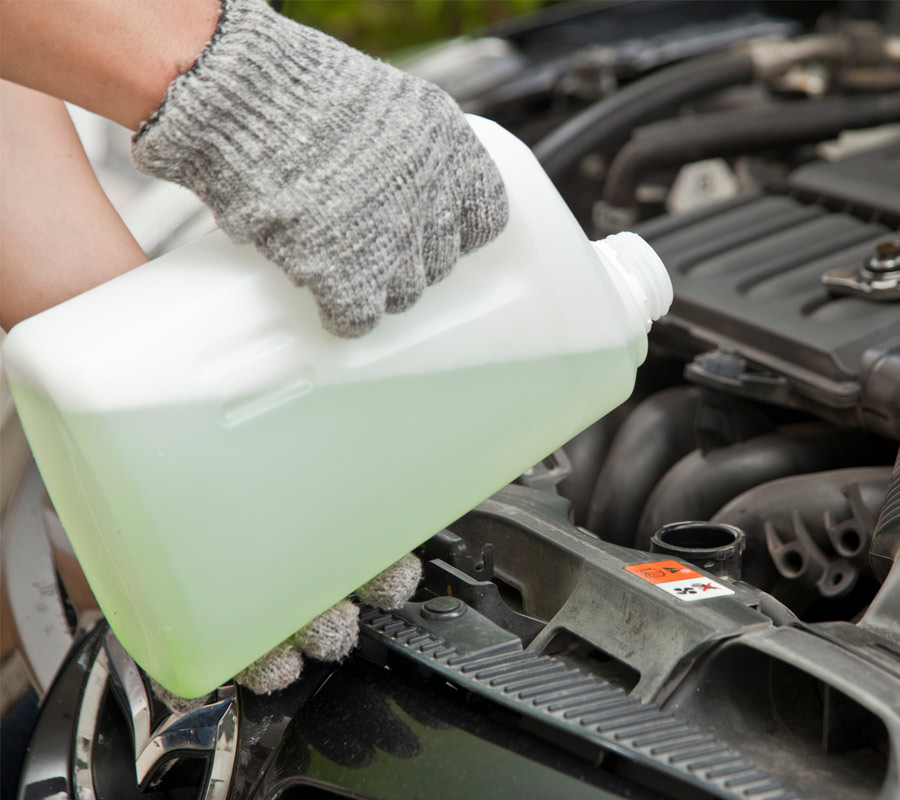Water can be used as a coolant for as long as it is kept in clean and uncontaminated condition. When water circulates through the engine, it dissipates heat from the system by absorbing heat from internal parts and transferring it to the atmosphere. The lifespan of coolant depends on how often you replace it and how well you maintain your cooling system.
Generally, you should change your car’s coolant every two years or 30,000 miles; however, some manufacturers may recommend changing sooner depending on their specific recommendations.
Water can be used as a coolant in many engines for quite some time, depending on the type of engine and how often it is serviced. Regular maintenance such as checking the water level, adding antifreeze when necessary and flushing out old coolant regularly will help keep your engine running smoothly and with proper cooling while using water as a coolant. Ultimately, you should always consult with an expert mechanic to determine how long it’s safe to use water as a coolant in your particular engine.
Disadvantages of Using Water As Coolant
One of the main disadvantages of using water as a coolant is its relatively low boiling point. When temperatures become too high, water can boil and become steam, which leads to system failure. Additionally, over time, minerals in the water can build up on engine parts and cause corrosion that may lead to costly repairs or replacement parts.
Finally, because it evaporates quickly when exposed to air or heat, it must be replenished frequently in order for an engine’s cooling system to remain effective.

Credit: granvilleoil.com
Can I Temporarily Use Water As Coolant?
Yes, you can temporarily use water as coolant. Here are the steps:
• Check your vehicle’s manual to make sure it is safe for such a practice.
• Mix distilled water with ethylene glycol in the correct proportion according to the engine’s size and type.
• Fill up the radiator with this mixture until it reaches its capacity.
• Start up your car and check for any leaks or temperature issues.
It is important to remember that only temporary use of water as coolant is acceptable and if used regularly, it will cause further damage to your vehicle’s engine components due to corrosion.
Can You Drive With Only Water in Radiator?
No, it is not possible to drive a vehicle with only water in its radiator. Water alone does not have the ability to lubricate and cool engine components like antifreeze or other cooling liquids do. In order for your engine to remain healthy and functioning properly, you must use a mix of antifreeze and water in your radiator:
• Antifreeze helps keep the temperature consistent by preventing freezing in cold temperatures and boiling in hot climates.
• Antifreeze also contains additives that help protect against corrosion within the radiator system.
• Finally, it acts as a lubricant between metal parts within the engine which prevents damage over time due to friction or heat.
Driving without any type of fluid could potentially cause severe damage to your vehicle’s engine so it is important to always check your coolant levels before getting on the road.
Does Water Last As Long As Coolant?
No, water does not last as long as coolant. Coolant can last for up to 5 years whereas water should be drained and replaced annually.
Reasons Water Does Not Last As Long As Coolant:
-Coolants contain additives that prevent corrosion and rust from forming on the engine parts.
-Coolants also help maintain a consistent temperature in the engine which prevents damage to components over time.
-Water alone cannot provide these benefits without additional additives being added which is why it needs to be changed more frequently than coolant.
How Long Does Water Coolant Last in a Car?
Water coolant in a car typically lasts between 24 and 36 months. Some factors that can affect this include:
• The type of radiator fluid used
• If the vehicle has been regularly maintained
• Driving habits and conditions
The best way to ensure your water coolant is lasting as long as possible is to follow your manufacturer’s maintenance guidelines, such as having regular check-ups on the cooling system.
Water vs Coolant Temperature Test. Which One is Better
Conclusion
In conclusion, water as a coolant is an effective and efficient method for cooling engines in cars. It can be used safely for many years, depending on the quality of the water and maintenance of the vehicle’s cooling system. However, it is important to monitor your car’s temperature regularly to ensure that any problems are addressed quickly in order to prevent engine damage from overheating.
Professional mechanics should also inspect your car’s cooling system annually or more frequently if necessary.
